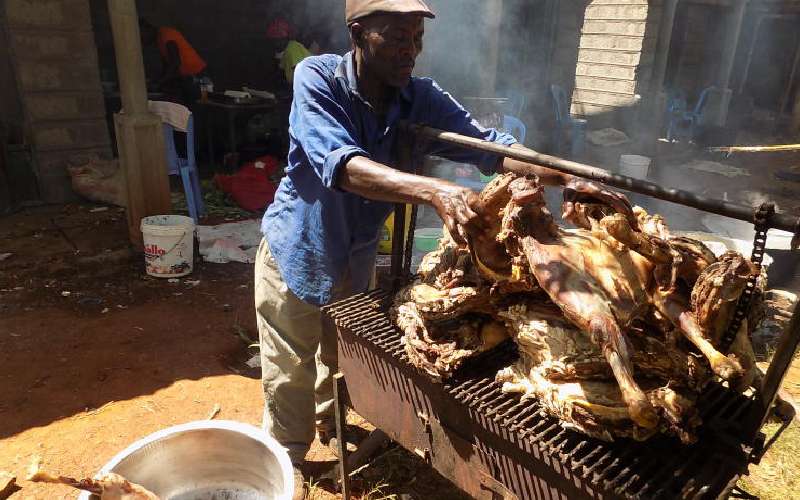×
The Standard e-Paper
Kenya’s Boldest Voice

A man roasts meat at G8 Resort in Embu. The price of meat has started going up due to a strain on supplies as demand dips. [File, Standard]
The sound of knives being sharpened at the country's many nyama choma joints is almost absent as Kenyans keep off entertainment spots following government directives on social distancing.